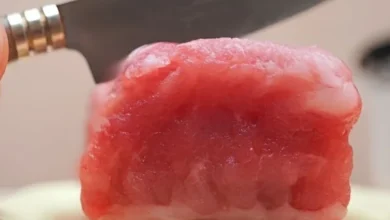
Can Muslims Handle or Use Gelatin?
What is Gelatin?
Gelatin is a tasteless, odorless substance derived from the collagen found in animal tissues, such as skin, bones, and connective tissues. It is widely used in various food products like jellies, marshmallows, gummies, and even in capsules for medications and supplements. Additionally, gelatin is commonly found in cosmetics, shampoos, and other personal care products.
Is Gelatin Halal or Haram?
The permissibility of gelatin in Islam depends largely on its origin. Muslims are required to consume only halal (permissible) food and products. Gelatin made from animal-derived collagen is considered halal or haram based on the animal source and how it is processed.
Pork-based Gelatin
Gelatin derived from pigs is strictly considered haram (forbidden) in Islam. Since pork is prohibited in Islamic dietary laws, any gelatin made from pigs is not permissible for Muslims to consume or use.
Beef-based Gelatin
Gelatin made from cows is a more complicated issue. If the gelatin comes from a cow that has been slaughtered according to Islamic principles—meaning it has been slaughtered by a Muslim and in accordance with halal practices—it is considered halal. However, if the cow is not slaughtered according to these rules, the gelatin would be deemed haram.
Halal Alternatives to Gelatin
Fortunately, there are several alternatives to animal-based gelatin that are acceptable for Muslims.
1. Halal Gelatin
Halal gelatin is made from collagen sourced from animals that have been slaughtered in accordance with Islamic law. This ensures that the gelatin is permissible for Muslim consumption and use.
2. Vegetarian and Vegan Gelatin
For those seeking plant-based options, vegetarian or vegan gelatin substitutes are ideal. These are made from ingredients like agar-agar (derived from seaweed), pectin (a fruit-based gelling agent), or carrageenan (a seaweed-derived substance). Since these are plant-based, they are naturally halal.
3. Agar-Agar
Agar-agar is a popular gelatin alternative derived from red seaweed. It has similar properties to gelatin but is completely plant-based, making it an excellent choice for those looking for halal options.
How to Identify Halal Gelatin in Food Products
When purchasing products that contain gelatin, it is important to read the labels carefully. Many food products clearly state whether their gelatin is halal or not. Look for products that are labeled as “halal” or “vegetarian,” as these are more likely to contain halal-friendly alternatives.
Halal Certification
Look for certifications from recognized halal certifying authorities. These ensure that the gelatin used in the product complies with Islamic dietary standards.
Vegetarian or Vegan Labels
If the product is labeled as vegetarian or vegan, it typically means that it does not contain animal-based gelatin. However, it’s still important to verify the specific ingredients.
Can Muslims Use Non-Food Gelatin?
Gelatin is not only used in food; it is also found in a variety of non-food items like cosmetics, vitamins, and medications. Muslims need to be cautious when using these products if they contain gelatin, especially if it is derived from non-halal animals.
Cosmetics and Personal Care Products
Many shampoos, lotions, and cosmetics use gelatin or its derivatives. Muslims concerned about using such products should check the ingredients list for gelatin. Opting for vegan or halal-certified cosmetics ensures that no non-halal gelatin is used.
Vitamins and Supplements
Some vitamins and supplements come in gelatin capsules, which may be made from pork or non-halal beef gelatin. Muslims should choose halal-certified or vegetarian capsules, which are free of animal-based gelatin.





